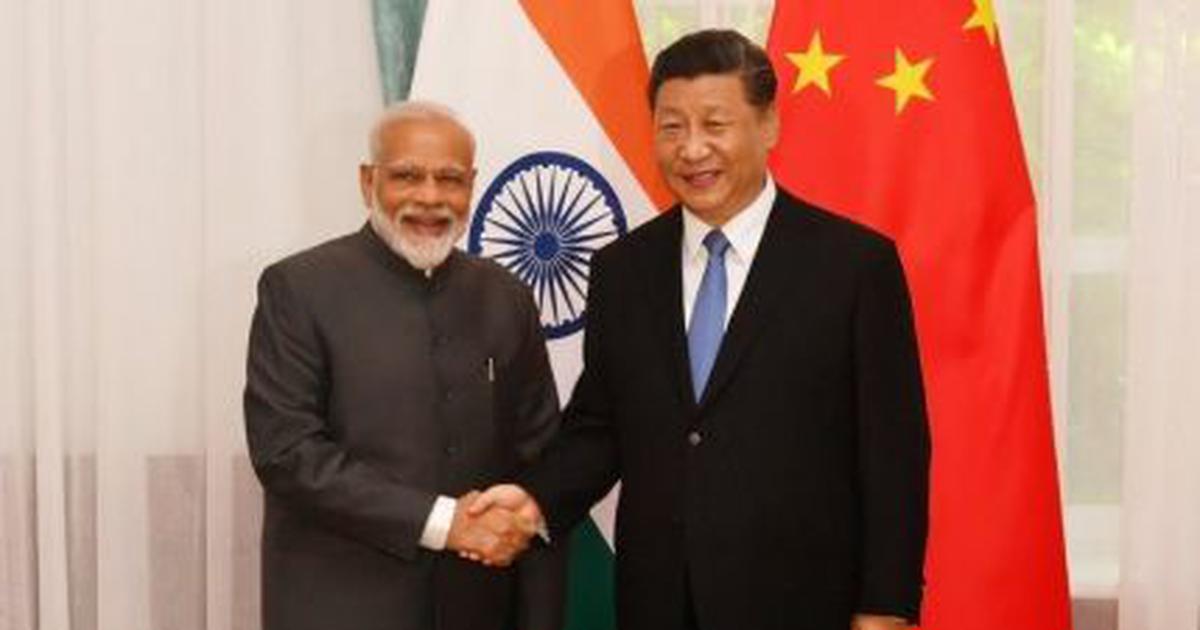China says bifurcation of J&K 'unlawful'; India hits back, calls it an internal matter
Thu 31 Oct 2019, 17:20:34

Beijing: China on Thursday objected to the bifurcation of Jammu and Kashmir into two Union territories as "unlawful and void", saying India's decision to "include" some of China's territory into its administrative jurisdiction "challenged" Beijing's sovereignty.
The Ministry of External Affairs released a statement hitting back at China. "The Union Territories of Jammu & Kashmir and Ladakh are an integral part of India. We expect other countries to respect India's sovereignty, territorial integrity," it said.
"The reorganisation of the erstwhile state of J&K into Union Territories is entirely an internal affair of India. China should refrain from commenting on internal affairs of India," said the MEA.
"China continues to be in occupation of a large area in Jammu and Kashmir and Ladakh," the statement added.
Jammu and Kashmir was bifurcated on Thursday into two union territories -- Jammu and Kashmir and Ladakh -- in accordance with the Indian government's August 5 announcement revoking the state's special status under Article 370.
China had earlier objected to the Indian government's August 5 order of the revocation of Article 370 and the formation of Ladakh as Union Territory, saying that some of the areas involved Chinese territory.
"The Indian government officially announced the establishment of so-called Jammu and Kashmir and Ladakh Union Territories which included some of China's territory into its administrative jurisdiction," China's Foreign Ministry spokesman Geng Shuang told the media here on Thursday.
"China deplores and firmly opposes that. India unilaterally changed its domestic laws and administrative division
challenging China's sovereignty," he said replying to a question.
challenging China's sovereignty," he said replying to a question.
"This is unlawful and void and this is not effective in any way and will not change the fact that the area is under Chinese actual control," he said.
"China urges the Indian side to earnestly respect Chinese territorial sovereignty, abide by our treaties and uphold peace and tranquillity in the border areas and create favourable conditions for proper settlement of boundary question," he said.
After the revocation of Article 370, External Affairs Minister S Jaishankar, who visited China in August, informed his Chinese counterpart Wang Yi that the revocation of the special status of Jammu and Kashmir is an internal matter and the sole prerogative of India and it has no implication for either the external boundaries of India or the Line of Actual Control (LAC).
On the Kashmir issue, Geng said, "China's position on the Kashmir issue is consistent and clear, this is a dispute left from history and it should be properly and peacefully resolved based on the UN charter, the relevant UNSC resolutions and other bilateral treaties and relevant sides should resolve the dispute through dialogue and consultations and uphold regional peace and stability."
Since the revocation of Article 370, China, which in the past stated that Kashmir issue should be resolved between India and Pakistan, started referring to the UN charter and UNSC resolutions for a settlement.
China has backed its all-weather ally, Pakistan's attempts to call for an informal meeting of the UN Security Council.
However, the informal UNSC meeting, in a rebuff to Beijing and Islamabad, ended without passing a resolution or statement.
No Comments For This Post, Be first to write a Comment.
Most viewed from International
Most viewed from World
AIMIM News
Latest Urdu News
Most Viewed
May 26, 2020
Do you think Canada-India relations will improve under New PM Mark Carney?
Latest Videos View All
Like Us
Home
About Us
Advertise With Us
All Polls
Epaper Archives
Privacy Policy
Contact Us
Download Etemaad App
© 2025 Etemaad Daily News, All Rights Reserved.

.jpg)
.jpg)
.jpg)






.jpg)


.jpg)
.jpg)
.jpg)
.jpg)
.jpg)
.jpg)
.jpg)
.jpg)
.jpg)
.jpg)
.jpg)
.jpg)

















